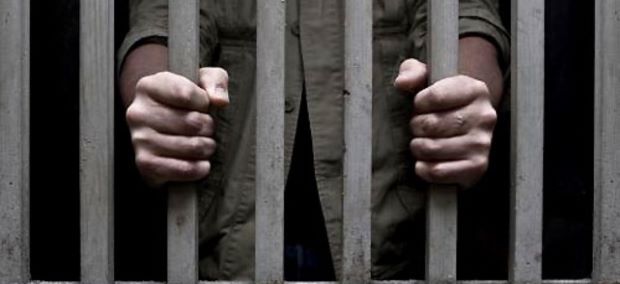Judicial pronouncements and ground realities
HRCSL provides comprehensive framework to end custodial deaths and hold perpetrators accountable
The right to life is the most fundamental of all human rights, enshrined both in Sri Lanka’s Constitution and in the international human rights treaties to which Sri Lanka is a party. Yet, between 2020 and 2025, the Human Rights Commission of Sri Lanka (HRCSL) documented 49 custodial deaths and 30 encounter deaths—figures that not only shock the conscience but demand urgent and systemic reform. These are not isolated incidents. They reflect an entrenched culture of impunity within law enforcement agencies.
The newly issued General Guidelines and Recommendations No. 1 of 2025 by the HRCSL provide a comprehensive framework for preventing such deaths and holding perpetrators accountable. But guidelines alone will not end these violations. Without legal enforcement, political will, institutional change, and public pressure, such measures risk becoming just another document gathering dust on the shelves of government offices.
Custodial deaths occur during arrest, detention, or investigation. Encounter deaths refer to extrajudicial killings often presented by authorities as acts of ‘self-defence’ during armed confrontations. The HRCSL notes that many custodial deaths—particularly in the districts of Colombo, Gampaha, and Kalutara—occurred within 24 hours of arrest, usually during narcotics or weapons investigations. In the case of encounter deaths, districts like Colombo, Gampaha, and Galle recorded the highest number of such fatalities, often accompanied by vague claims that suspects resisted arrest or attacked officers.
These trends point to a troubling pattern: the normalization of excessive force, torture, and extrajudicial violence under the guise of maintaining law and order. They also reflect systemic violations of constitutional guarantees, particularly Article 11 (freedom from torture) and Article 13(4) (right to life).
The Supreme Court ruling in Fathima Sharmila v. Officer in Charge, Slave Island Police Station (2008) was a landmark decision affirming the state’s obligation to align its practices with international human rights standards. Yet, nearly two decades later, the gap between judicial pronouncements and on-the-ground realities remains stark.
What the HRCSL Guidelines Recommend
The HRCSL’s General Guidelines and Recommendations No. 1 of 2025 aim to bridge this gap by proposing clear, actionable reforms. Key areas of focus include:
Safeguards During Arrest and Detention
-Arrests must be based on reasonable suspicion, not arbitrary power. Officers are required to identify themselves, inform suspects of the grounds of arrest, and avoid any degrading treatment.
-Female suspects must be searched only by female officers, and all detainees must have access to legal counsel and prompt medical care.
-Accurate and transparent record-keeping is required, documenting injuries, medical needs, and all communication with family members.
Banning Torture and Coercion
-Interrogations must take place only in designated facilities. They must be time-bound, include rest breaks, allow for translators if needed, and be conducted in the presence of legal counsel.
-Confessions obtained through coercion or torture are inadmissible and violate the right against self-incrimination under Article 13(5).
Restricting the Use of Force
-Firearms may only be used as a last resort, and only when there is a clear threat of armed resistance.
-Restraints must never be used as punishment, and high-risk operations require prior approval from senior officers based on an objective threat assessment.
Independent Investigations
-All custodial and encounter deaths must be treated as potential crime scenes.
-An independent Committee of Investigators (COI)—including senior police officers, judicial medical officers, and legal experts—must be promptly appointed to investigate.
-Families of victims must be notified without delay, and autopsies must be conducted without interference.
Systemic Accountability Measures
-CCTV cameras must be installed in all police stations.
-Officers must receive regular training on lawful use of force.
-Psychosocial support should be available to officers to prevent burnout and misconduct linked to stress.
The Roadblocks to Justice
The guidelines are comprehensive. But as Sri Lanka’s experience shows, implementation is often the Achilles’ heel. There are three major roadblocks that need urgent attention.
First is cultural resistance. Decades of prioritizing confessions over due process have created a police culture where extracting information—by any means necessary—is seen as effective policing. Many of the documented deaths occur during interrogation or attempts to extract evidence, indicating torture or abuse. Changing this mindset is essential. Training programs must shift from a culture of control to one rooted in service, rights, and accountability.
Second is political interference. High-profile cases such as the 2012 Welikada Prison massacre continue to suffer from delayed investigations, obstructed inquiries, and a lack of political will. If independent commissions are to succeed, their autonomy must be protected. Members should be appointed based on merit, not political allegiance, and insulated from intimidation or undue influence.
Third, there is weak prosecution and follow-through. Even in cases where police misconduct is identified, prosecutions often collapse due to poor evidence, inadequate forensic support, or lack of witness protection. The HRCSL guidelines call for swift disciplinary actions, but these must be accompanied by judicial reform that strengthens case management, evidence preservation, and trial integrity.
For the HRCSL’s recommendations to be more than aspirational, they must be codified into law. Parliament should introduce legislation that mirrors these guidelines, with penalties for non-compliance. The proposed Committee of Investigators must be given financial and operational autonomy, including access to forensic laboratories and digital tracking tools.
Moreover, civil society must be actively involved in monitoring compliance. Victims’ families deserve justice, transparency, and reparations—not a drawn-out legal maze that leads nowhere. Public trust in the justice system hinges on visible accountability.
Ultimately, the right to life cannot be protected by words alone. It must be defended through action—through laws, institutions, and above all, a culture that treats every life with dignity. The 79 lives lost between 2020 and 2025 cannot be brought back. But their deaths must mark a turning point. Sri Lanka must ensure that never again will a person die in the custody of those sworn to protect them.
-ENCL



Comments are closed, but trackbacks and pingbacks are open.